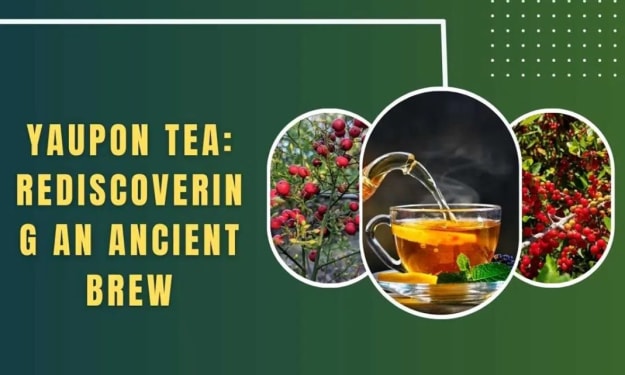
Intellect is the capacity to think through reason, then act. It is far different from intelligence, which can be obtained from a book, teaching(s), or life experiences. It follows the culmination of self-discipline and enables us to more easily maintain control over our life experiences with integrity and clarity. It can be developed on its own but is often sought after and obtained with practice.
I admit that I lack intellect. Instead of responding, I react. Oftentimes it is out of insecurity or unwillingness to admit that I'm wrong about something. I believe my reactions are rooted in lifelong behavioral and cultural practices among other things. Despite this, I fight to rewire my brain. I embrace unlearning as a critical tool that will hopefully one day align with intellect.
Intellect is not a skill that stands alone. It is one that requires thinking, reason, judgment, and decision-making.
There are plenty of external experiences that contribute to our overall mood. Different stressors interrupt the mind from accomplishing intellect. It can be so overpowering that we seek what is comfortable as a way to respond to events around us and within us.
For many who don't yet practice intellect, there is a tendency to resort to keeping control by any means possible. This is often through reacting. This happens blindly and without the collection of thoughts, which lacks logical reasoning or reflective judgment. Then we become complacent to this feeling of comfort because it's only natural and easier that way.
When we lose control of something, we become more attached to gaining that control back. This is so even if it means acting irrationally. When we lose control of ourselves and outside endeavors, our mind becomes increasingly scattered as well.
We all have something or multiple things (like activities) that control us, whether we realize it or not. For some, it may come in the form of an addiction to something like alcohol or social media.
We rely on this activity for joy or fulfillment. Later down the timeline in our addictions, these activities no longer please us but actually may hold us back from the verge of insanity. It controls us, and in the void of control, the want for it back becomes insatiable.
Photo by Abishek on UnsplashFor many, we rhetorically wish to fight the addiction but find it challenging and unnerving when action is required. Perhaps it is so woven into the various complexities of our life that it has become part of ourselves as a norm. It becomes inclusive of who we are.
Our happiness or reprieve from life then starts to depend on future events - moments that include our addictions, yet appear to be soon. The only difference is we see these future events as more joyful. This is an unrealistic expectation for an activity that will be carried out in the same manner as before. Also, one that has proven to no longer bring us happiness but to keep us just satisfied in the monotony of life.

But when we have intellect, our mind is at peace in the present moment and we are only concerned with making now the best that it can be. When the object or activity no longer controls you, you have developed intellect.
In my own experiences, I've come to believe it is true that when I am mentally apart from something, I enjoy it more. I aspire to regularly engage in this mentality since it is a more simple way of living. Though, it seems nearly impossible for me to adopt this philosophy of thought. I attribute this to my lack of self-discipline and recognize that, so I practice.
By studying intellect and striving towards it as a long-term goal, I've realized that peace and happiness are products of a still mind. By having control over your mind, there is less pressure and life is more positive.
Everything just falls into place because you trust yourself and can maintain focus. Without worrying, mental energy can be directed more appropriately into achieving any goal, big or small.
"How can I build my intellect?" There are a few ways.
Think like a child.
If we think about children, we can realize that for the most part, they have no worries about the past and no anxieties for the future. They find joy in every small activity. They often become so absorbed in a task, even the trivial ones that their presence with the activity or object is nothing short of miraculous. That has a lot to do with an immature mind experiencing life for the first time.
But I think it's important to note that being present in the now has a big part to play in the overall satisfaction of life. We can learn this from children and try to live through the lens of a more youthful mind. This may help us develop intellect.
Just acknowledging the mindset of children helps me to recognize that the adult mind has a lackluster tendency to ramble into past worries and future anxiety, which as a result causes mental fatigue. This mental fatigue refutes intellect unknowingly, because of our minds. Since our mind is too tired to direct it towards higher levels of reason and judgment than usual, this directly affects and usually deters from intellect-based decision-making.

Start Questioning Everything
It wasn't until my final year of college that I started actively questioning things I didn't agree with or simply wanted to know more about. I left my pride and started being more vocal about various social, historical, and current events that I simply hadn't yet acquired any knowledge for. It was kind of odd at first saying aloud, "I don't have an opinion on ____.
I would love to hear what you know on the subject." And now it's a phrase I regularly use without hesitation. Otherwise, I wouldn't gain half the insight that I do simply by acknowledging my ignorance.
Knowledge is an important tool to help utilize intellect. By questioning everything, you gain knowledge and wisdom and exercise intellect like a muscle.
"For the world is what it is, but with intellect you will be at peace wherever you are." - Gautam Jain (during a lecture on Wisdom For Life at Rutgers University)
Try to be as Selfless as Possible
This is no easy feat. In a society where it is expected and glorified to do whatever it takes to make it to the top, acting selflessly in Western society can be considered naïve. Perhaps you can try working for a purpose beyond your selfish interests. For different people, this will mean different things.
For me, it was becoming an animal rights activist in an attempt to work towards solving a problem much bigger than myself. My efforts are driven to mitigate as much animal abuse and mistreatment in the world as possible. So I do what I can to help fight this cause, though it doesn't benefit me directly. This aspect of my life has nothing to do with me.
Photo of authorThe entire focus is on saving animals. This part of my life differs drastically from every other because even if most of what we do may be an attempt at selflessness it is likely to still be self-serving to some capacity.
I find myself blessed to share my knowledge and insights on a platform where people can find value in it but I am also paid for my work. Is it possible that the full value of my writing or any art form or service is in some way diminished because compensation is involved?
Maybe - but would I be able to think profoundly and self-reflect deeply into every article I wrote if there was no compensation involved? No - and so this paradox of mindful introspection and reality does not collapse.
So when I say do something that evokes a genuine sense of selflessness, really fish for something worthy to fall under that category.

Become Devoted
I don't mean religious or spiritual devotion, but if you feel that suits you - then by all means, please explore it. To me, devotion means having an awareness at the emotional level of others without making something about yourself.
This can also be phrased as "holding space" for someone. While you may not be able to understand why a person acts the way they do, does the things they do, or feels the way they do, we can hold space to them. We do this to acknowledge that their feelings are valid and recognize their culmination of life experiences that have led them to this point.
I have recently started implementing this life hack while encountering people, and I genuinely feel more at peace. Instead of trying to wrap your head about an individual's actions that may seem absurd, hateful, distasteful, ignorant, or selfish, I try to look at the bigger picture.
When I do this, I can recognize that their beliefs and feelings, and words are a reflection of them and have absolutely nothing to do with me. They are not responsible for how I feel about what they do or say. I am responsible for my reaction. And let me tell you, I have eliminated a lot of stress from my life by practicing this.
Looking at the life paths of others with whom we associate with or bump into, lets us learn from them and stop taking everything so personal. Starting today, make an active effort to curb yourself from reacting, and simply decide you want to start responding. Recognizing that the world doesn't revolve around you or me is liberating.
It allows us to focus on the bigger picture together to master the skill of intellect. And remember, Intellect is not a skill that stands alone. It is one that requires thinking, reason, judgment, and decision-making.
Xo, Susie
〰〰〰〰〰〰〰〰〰〰〰〰〰〰〰〰〰〰〰〰〰〰〰〰〰〰〰〰〰〰〰〰〰
If you enjoyed this piece, please consider leaving a tip. Thanks!✌️😊
About the Creator
Susie Pinon
Italian chick with a New Yorker attitude. Free-spirited, eclectic by nature, vegan. I'm fueled by my passion for the art of words. I'm addicted to chocolate + love to heal through the sun's rays. Let's talk words
https://linktr.ee/xosusiep






Comments
There are no comments for this story
Be the first to respond and start the conversation.